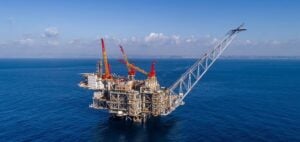The Aphrodite gas field, discovered in 2011, is the first of several major fields identified offshore Cyprus. Despite its potential, the project has suffered multiple delays, exacerbated by disagreements over development plans between Chevron and the Cypriot government. Initially, Noble Energy, taken over by Chevron in 2020, had proposed a development strategy comprising five wells and a floating production unit (FPU). On the other hand, Chevron has proposed reducing to three wells to use Shell’s infrastructure in Egypt, increasing efficiency. This integration aims to reduce costs by optimizing existing resources and infrastructures.
Reaction from the Cypriot Ministry of Energy
Cyprus’ response to Chevron’s revised proposal was not favorable. The Ministry of Energy has expressed reservations about downsizing the infrastructure, insisting on a plan that preserves five wells and the floating production unit, deemed essential to optimize future exploitation of the field’s reserves. In December, a deal seemed to be in sight when discussions led to a “new agreement” on the development of Aphrodite. However, hopes were dashed when the latest plan was rejected in March, with Chevron given until the end of March to submit its optimized proposal.
Strategic and economic implications
Cyprus’s rejection of Chevron’s plan raises important strategic and economic questions. For Cyprus, maximizing Aphrodite’s economic returns is crucial to the regional economy and energy security. In addition, Chevron aims to streamline operations to ensure the economic viability of the project despite volatile gas prices.
Consequences for the European Union and energy security
In response to falling Russian gas imports, the EU is seeking to diversify its energy sources. The efficient development of fields like Aphrodite is essential for Europe’s energy security. Aphrodite offers an alternative to traditional sources and can help stabilize energy markets in crisis.
The final decision on Aphrodite will influence energy markets and politics across Europe. The development of the Aphrodite gas field involves technical, economic, geopolitical and strategic issues. In addition, the resolution of the conflict between Chevron and Cyprus will define the energy future of the Mediterranean region and of Europe.





















